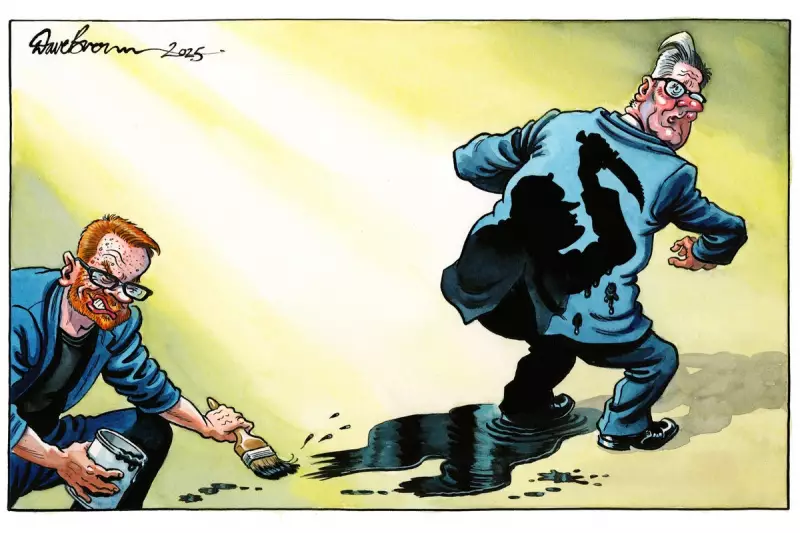
Westminster in Turmoil as Labour Leadership Crisis Escalates
Sir Keir Starmer finds himself at the centre of a growing political storm as unauthorised briefings from within Number 10 suggest an impending leadership challenge following what's expected to be a difficult Budget in a fortnight. The Prime Minister's own team appears to be behind these leaks, in what many are calling a spectacularly counterproductive move that has only served to highlight divisions within the Labour government.
The Streeting Factor and No 10's Gambit
In what can only be described as an extraordinary political miscalculation, Downing Street deliberately floated Health Secretary Wes Streeting's name as a potential leadership contender just as he was preparing to deliver a landmark speech on NHS reform. The apparent strategy was to "flush out" Mr Streeting and force him to publicly deny any leadership ambitions.
The timing could hardly have been worse, completely overshadowing Mr Streeting's important announcements about progress in cutting NHS waiting lists. Rather than appearing intimidated, Mr Streeting responded with humour, making references to the BBC's hit show The Traitors and dismissing the briefings as "juvenile."
Sir Keir Starmer himself betrayed the pressure he's under during Prime Minister's Questions, when he joked about accepting an invitation to visit Rhyl in north Wales - a clear indication he'd rather be anywhere but Westminster dealing with this self-inflicted crisis.
Broader Implications for Labour's Future
The renewed leadership speculation comes at a particularly vulnerable time for the Labour government. Having been in power for only 16 months, the party faces plummeting popularity ratings, potential losses in Scotland and Wales, and the very real threat of Nigel Farage leading Reform UK into government after the next general election.
Many Labour MPs are deeply concerned about their electoral prospects, with some believing a change at the top might improve their fortunes. However, as The Independent's editorial argues, switching leaders wouldn't create a single job, pay off any of the national debt, build additional homes, or close asylum hotels.
The fundamental social and economic challenges facing Britain would remain entirely unchanged by a leadership coup. What would change, however, is the public's perception of a party more interested in internal squabbling than governing effectively.
If Sir Keir does survive to lead Labour into the next election, he'll be doing so at the helm of a party that has been publicly weakened by these very public divisions. The timing has been particularly helpful for opposition leader Kemi Badenoch, who appears to be growing more comfortable in her role just as Labour descends into chaos.
Ultimately, the British public elected Labour to deliver meaningful change, not to engage in what increasingly looks like self-indulgent political gamesmanship. As the editorial concludes, voters will not forgive a Labour government that prioritises internal power struggles over addressing the nation's pressing needs.






